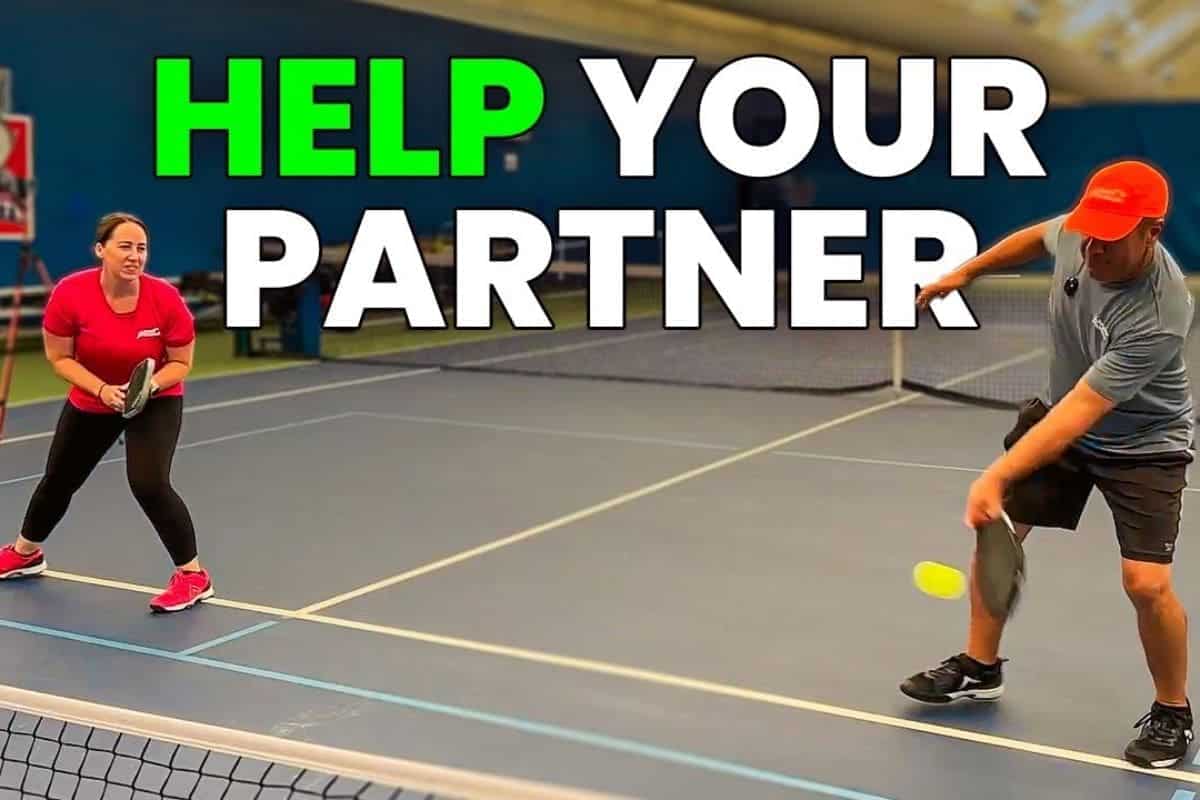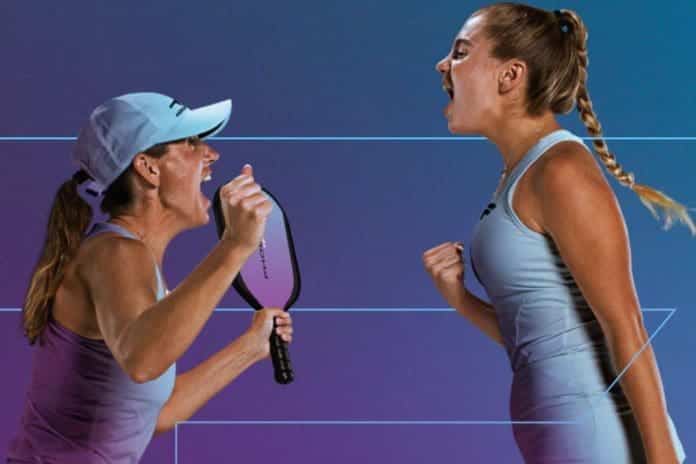Supporting a Frustrated Partner in Doubles Pickleball: In the high-stakes, adrenaline-pumped world of doubles pickleball, the game often becomes as much a mental challenge as a physical one. Amidst the furious dinks and relentless volleys, a moment of frustration from a partner can quickly shift the dynamic of a match. Supporting a struggling teammate is an art that combines empathy, strategic thinking, and a touch of psychological finesse. Here’s a deep dive into how to be the pillar of strength your partner needs when the game isn’t going their way.
The Power of Empathy and Understanding
When your partner is visibly frustrated, your first move should be to provide a stable, reassuring presence. Words of encouragement can be incredibly powerful. A simple “Don’t sweat it” or “We’ve got this” can shift the mood from defeat to determination. It’s crucial to ensure that these words are delivered with sincerity, avoiding the trap of empty platitudes.
Empathy also extends beyond words. A calm demeanor can act as a stabilizing force, helping to soothe your partner’s nerves. Your body language—maintaining eye contact, nodding, and smiling—communicates unwavering support. The goal is to make your partner feel understood and less isolated in their frustration, which can be achieved through shared experiences or simply by being present in the moment.
Strategic Interventions: Changing the Game Plan
In moments of high tension, sometimes a tactical pause can be just what the doctor ordered. Suggesting a quick bathroom break or hydration pause isn’t merely about taking a breather; it’s a strategic move to give your partner a chance to reset mentally and physically. Use this time to regroup and reassess the game plan, ensuring that both of you are on the same page.
If your partner is struggling with complex shots or Pickleball Strategies, simplifying the approach can be beneficial. Encourage them to focus on high-confidence shots—those they are comfortable with—rather than trying to execute difficult plays. Adjust your game strategy to alleviate pressure; for instance, target easier shots or slow down the pace to make the game less daunting.
Behavioral Adjustments: Shaping the Mindset
Immediately after a mistake, it’s essential to offer quick reassurance. Comments like “It’s okay, we’ll get the next one” can be crucial in helping your partner move past a misstep. Emphasizing positive moments, such as successful plays or improved technique, helps shift their focus from errors to achievements.
Motivational prompts like “Shake it off” or “We’re still in this” can bolster resilience. Sometimes, the best course of action is to not react to errors and simply move on to the next point. This approach prevents the cycle of self-criticism and keeps the momentum going.
Personalization: Tailoring Your Approach
Understanding your partner’s personality is key to providing effective support. Some players thrive on verbal encouragement, while others may prefer silence and space. Avoid offering unsolicited advice during the game, as this can exacerbate frustration rather than alleviate it.
If your partner frequently apologizes for mistakes, consider addressing it. Ask them if the errors were intentional and reassure them that you’re more focused on the positives of their play. Tailoring your approach based on their needs can make a significant difference in their performance and confidence.
Physical Interventions: Releasing Tension
Physical Pickleball Strategies can also play a role in mental rejuvenation. Suggesting a few hard shots to release pent-up frustration or encouraging deep breathing exercises can help your partner reset their focus. These actions are not just about physical relief; they’re about creating a mental shift from frustration to renewed energy.
In Practice: Real-Life Scenarios
Imagine a match where your partner is struggling with missed shots. As they grow increasingly frustrated, offer calm, supportive comments like “It’s no big deal” or “We’ve got this.” Adjust the game plan to play to their strengths, such as encouraging them to focus on high balls where they feel more confident. Sometimes, giving your partner space and avoiding commentary on their mistakes can be the most effective way to help them regain their composure.
In the high-pressure environment of pickleball, your role as a supportive partner can be the difference between a triumphant comeback and a dispiriting loss. By combining empathy, strategic adjustments, and personalized support, you can help your partner navigate their frustration and keep the game on track. After all, in doubles pickleball, success isn’t just about how well you play individually but how effectively you support each other through the ups and downs of the match.

News in Brief: Supporting a Frustrated Partner in Doubles Pickleball
In doubles pickleball, supporting a frustrated partner is crucial for success. Start with empathy: offer sincere encouragement and maintain a calm, reassuring presence. Use strategic pauses, like a quick break or hydration, to help your partner reset mentally and physically. Simplify the game plan by focusing on high-confidence shots and adjusting Pickleball Strategies to reduce pressure. Immediately after mistakes, provide quick reassurance and shift focus to positive moments. Tailor your approach based on your partner’s preferences, whether they need verbal support or space. Physical interventions, such as deep breathing or hitting harder shots, can also help alleviate tension. By blending empathy, Pickleball Strategies adjustments, and personalized support, you can help your partner overcome frustration and improve your team’s performance.
Also Read: New Indoor Courts in Collierville By Pickleball 901

